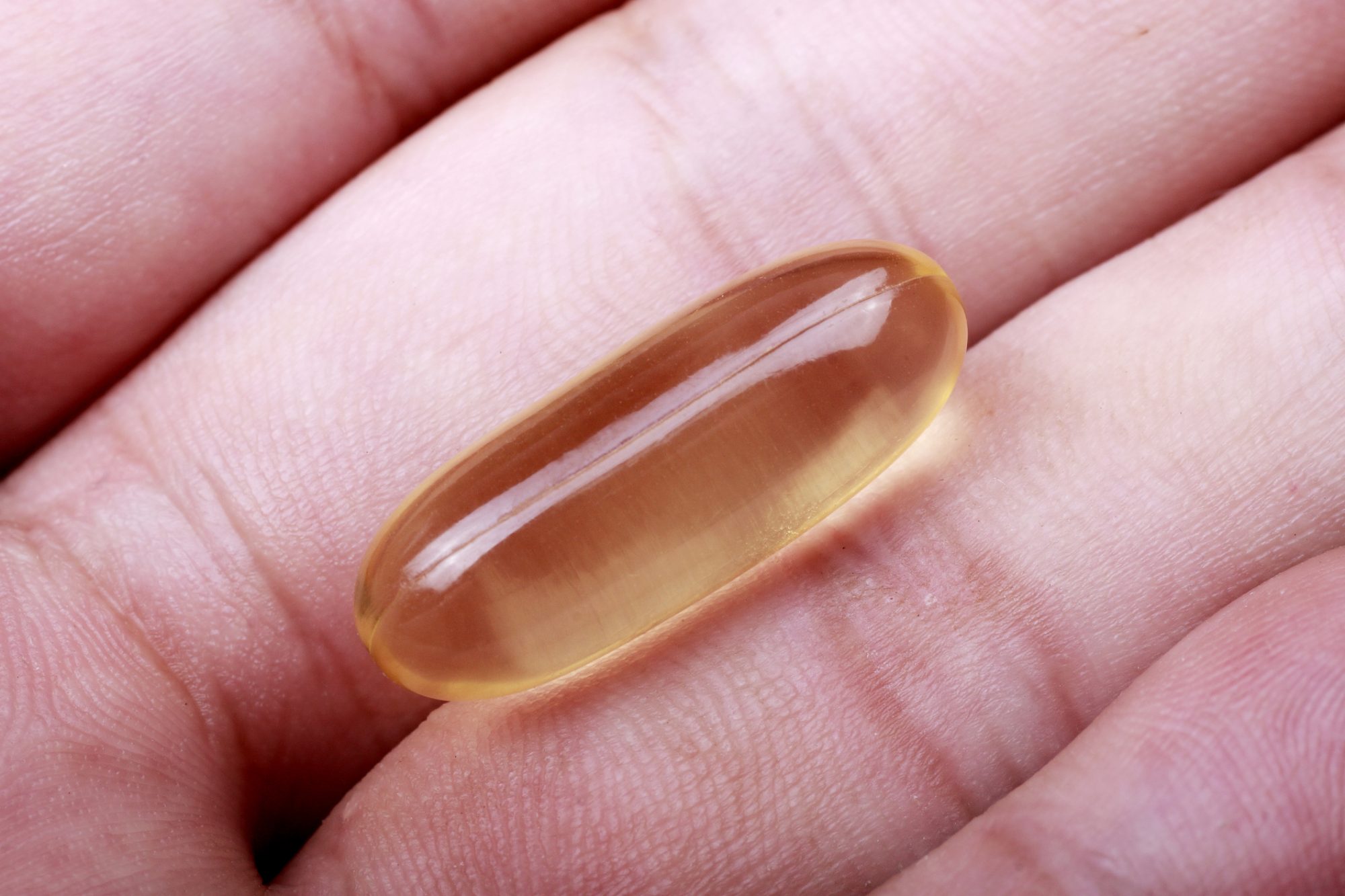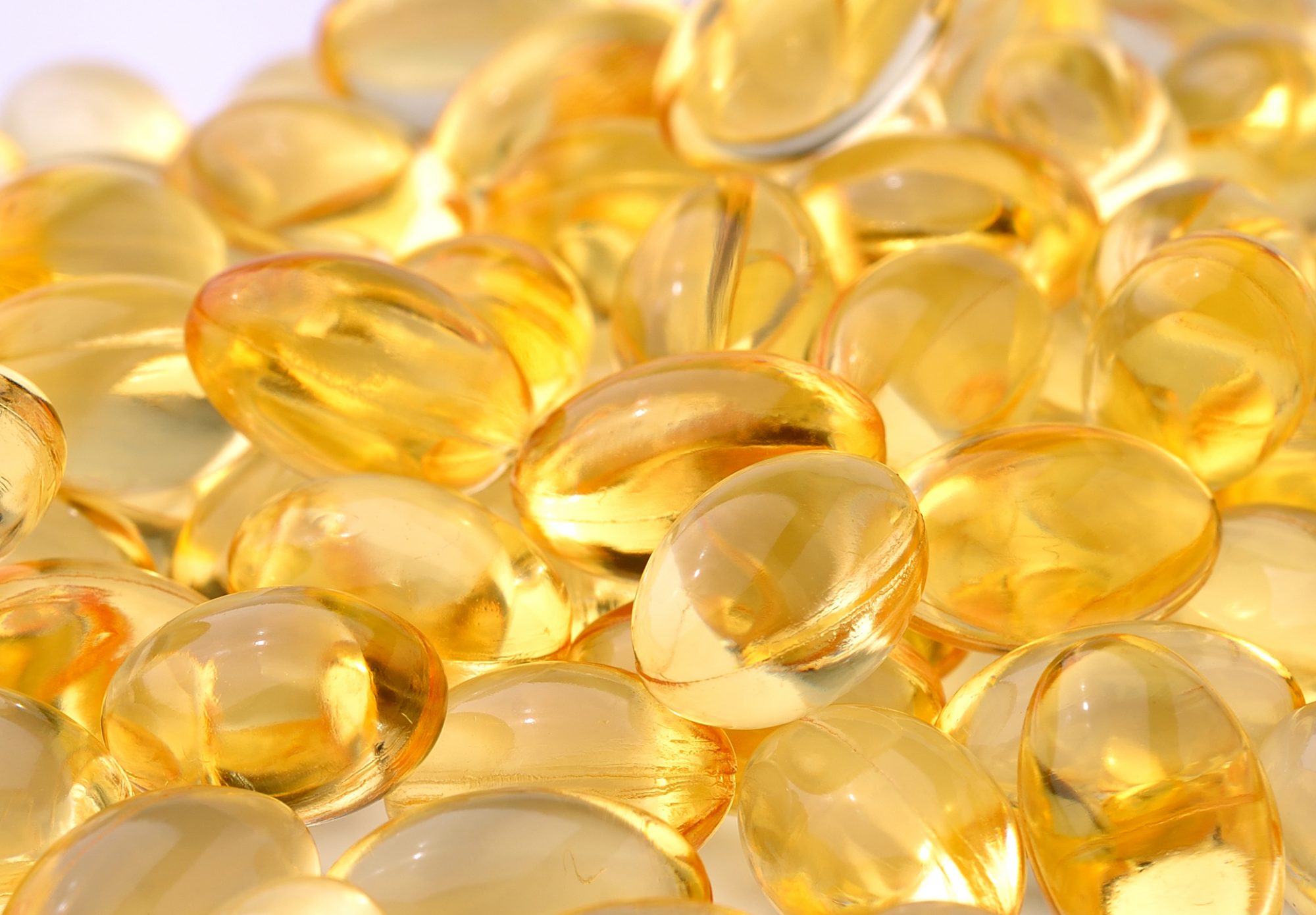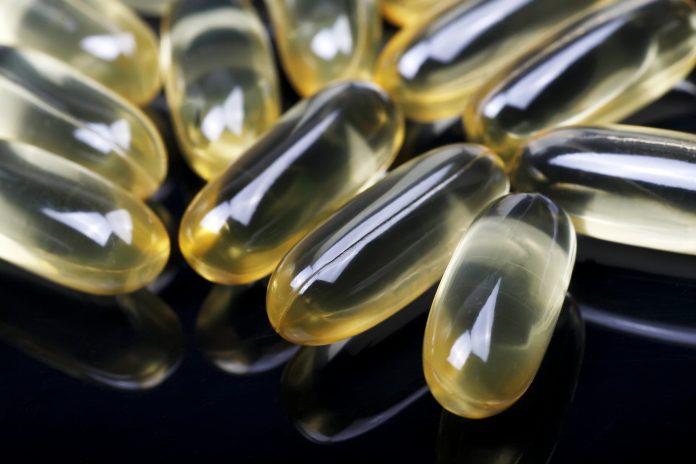Dr Deborah Lee, Dr Fox Online Pharmacy, explores and examines fish oil benefits when it comes to the health of men
In the past decade, fish oil supplements were recommended, primarily because of their proven benefits in protection from cardiovascular disease. However, more recently, research has been accumulating on the benefits of fish oil for men’s health conditions – namely erectile dysfunction, testicular function, and depression.
- Why might fish oil benefit these conditions?
- What is known so far, and what are the recommendations for men’s health?
What is fish oil?
Fish oils are oils obtained from oily fish. These oils have a high concentration of omega-3 polyunsaturated fats (PUFAs). The Western diet is typically low in these omega-3 fatty acids. In contrast, our diet is often rich in omega-6 PUFAs.
The names omega-3 and omega-6 are due to the position of a double bond in the molecular structure of each long-chain fatty acid.
The difference between saturated and unsaturated fats
When we think about dietary fat, it’s important to realise the difference between saturated and unsaturated fats.
Saturated fats are often animal fats, which are usually solid at room temperatures – such as butter, lard, ghee, and the fats in cheeses, fatty meats, cream, and other dairy products. Saturated fats are linked to the acceleration of atherosclerosis – the laying down of fatty deposits in the arterials wall. Atherosclerosis is the major cause of heart disease – angina, heart. Attacks and strokes. For good health, we should all be reducing our intake of saturated fat.
However, unsaturated fats, have proven health benefits. These are fats found in plant-based products such as olive oil, sunflower, avocado, and rapeseed oil, and in nuts and seeds. Fish oils are another excellent source of unsaturated fats.
Omega-3 fatty acids are a type of unsaturated fat, found in fish oils, which have specific functions for good health.
What are omega-3 fatty acids?
Omega-3 fatty acids are polyunsaturated fatty acids (PUFAs). These are called ‘essential fatty acids,’ as they are mandatory for health, and because the body cannot synthesise them, they have to be taken in as part of the diet.
Some nutritionists have been concerned that in recent years, with the emphasis on the need to follow a low fat diet, many people may have inadvertently been missing out on essential fatty acids in their diets. This may be particularly true for men who are at increased risk of heart disease and at a younger age, than women.
Omega-3 fatty acids are found in oily fish such as sardines, mackerel, trout, salmon and halibut. They are also found in algae, nuts, and certain plants. PUFAs are vital for health because they make up the outer phospholipid membrane of many different types of cells. The integrity and functioning of these cell membranes are vital for optimal health.
Omega-3 fatty acids play a crucial role in many body mechanisms. These include lowering inflammation, preventing blood clotting, and assisting in the control of blood glucose. As a result, a good dietary intake of omega-3 is thought to be linked to a lowered risk of cardiovascular disease (heart attacks and strokes), high blood pressure, type-2 diabetes, cancer, arthritis, and dementia. Some studies have shown omega- 3 may have a role in neuroprotection, helping maintain and preserve cognitive function.
Omega- 3 fatty acids include α-linolenic acid (ALA), eicosapentaenoic acid (EPA), and docosahexaenoic acid (DHA). EPA and DHA are found in fish. ALA is found in flaxseed, rapeseed oil, canola oil, walnuts, soya beans and pumpkin seeds.

Omega-3 or omega-6?
In the past, experts have stressed the need to consume less omega-6, and more omega 3, suggesting omega-6 may have associated health risks. However, recent evidence suggests this is not the case. There are also health benefits from omega-6. The consensus is that we should not worry about having too much omega -6 but should just make sure we are all getting enough omega-3.
What are the general health benefits of omega-3 fatty acids?
It’s helpful to start by understanding some of the overall ways in which omega- 3 can induce health benefits. Let me explain.
What is oxidative stress?
Omega-3 is known to help counteract oxidative stress. Let’s explain. Every cell in the body is continually using oxygen for its cellular processes in a process known as oxidation. As a by-product of oxidation, negatively charged particles are produced, called reactive oxygen species (ROS). These ROS are potentially dangerous molecules as they can damage DNA. The production of ROS is called oxidative stress. Oxidative stress is thought to underpin the development of many of the chronic diseases we see today, such as heart disease, high blood pressure, type-2 diabetes, cancer, and dementia. It also plays a major role in erectile dysfunction.
Oxidative stress ‘switches on’ chronic systemic inflammation, inducing cell-signalling molecules which stimulate and control the process of inflammation – known as inflammatory mediators. Omega-3 fatty acids have an anti-inflammatory effect and actually damp down inflammation. Research has shown that a diet rich in omega-3 lowers inflammatory markers, such as interleukin IL-1 and IL-6.
Omega-3 fatty acids and erectile dysfunction
Erectile dysfunction (ED) is caused by a combination of pathological processes –
- Endothelial dysfunction – The endothelium is the lining of the blood vessel wall. The ability of the cells that make up the endothelium to function correctly, causing the vessels to constrict and relax, so they can fill with blood, and then empty afterwards, is crucial for producing an erection.
- Penile fibrosis – This is fibrosis (scar tissue) within the smooth muscle of the penile walls and blood vessels. If these tissues are fibrosed – scarred – they are unable to swell up and enlarge as they fill with blood, preventing the development of an erection.
What is endothelial dysfunction?
When a man has erotic thoughts or sexual stimuli, this leads to the release of nitric oxide (NO) in the penile blood vessels. NO is a powerful vasodilator, meaning the muscular walls of the blood vessels relax and the region becomes filled with blood, eventually leading to an erection.
The process of creating an erection is therefore highly dependent on the release of NO, and the responsiveness of the endothelium (the blood vessel wall) to NO. In men with small vessel disease, the blood supply to the penis is restricted due to atheroma (fatty deposits in the arterial walls). Plus, there may be a relative deficiency of NO, or the arterial walls may be stiff and not dilate well.
Erectile dysfunction may be the first sign of an abnormal endothelium and may signify impending cardiovascular disease in men. If the penile endothelium is abnormal, the cardiac endothelium could also be affected – increasing the risk of angina, or a heart attack. This is why men with ED are strongly advised to come forward and see their GP for a cardiovascular risk assessment and check-up.

How can omega-3 help?
A 2017 review concluded that in 16 out of the 17 studies included, omega-3 fatty acids improved endothelial function.
Firstly, omega-3 is also a potent antioxidant and can help counteract oxidative stress occurring in the penile tissues.
Omega- 3 also has some properties which are thought to directly assist erectile function.
- Omega –3 has been shown to increase the production of nitric oxide in endothelial cells.
- It directly stimulates the enzyme nitric oxide synthetase within human endothelial cells.
- In mice, exposed to cigarette smoke, dietary supplementation with omega-3 was shown to normalise endothelial function.
- Studies have shown that omega-3 fatty acids act to neutralise ROS, which can impair endothelial reactivity.
- They also have an anti-inflammatory and anti-hypertensive effect within the penile tissues and vessels.
What is penile fibrosis?
As the penis ages, the body of the penis, the corpora cavernosa, loses muscle fibres and becomes increasingly fibrosed. This means the tissues of the penis gradually lose their elasticity. The corpora become relatively unable to dilate and stretch as they try to fill with blood to create an erection. 66%-75% of cases of ED are now thought to be due to corporeal fibrosis.
Atherosclerosis – the laying down of fatty plaques in the penile arteries – also reduces blood flow to the area, meaning the penile tissues are relatively oxygen deficient. Research has demonstrated that oxygen deficiency can directly stimulate local fibrosis to occur.
How can omega-3 help?
Omega-3 has been found to be specifically beneficial for the repair of tissues, damaged due to ischaemia (oxygen deficiency). Dietary intake of omega-3 has been associated with increased antioxidant activity at the repair sites, as well as a decrease in the production of proinflammatory cytokines (cell-signalling molecules), meaning it appears to reduce local inflammation.
In rats with simulated pelvic ischaemia, treatment with omega-3 was shown to increase intracorporeal (erectile) pressure, along with improvements in biological markers of inflammation.
Omega-3 fatty acids and testicular health
Infertility is a distressing problem that affects around 15% of couples. In 40%-50% of cases, one of the factors is problems with sperm. Semen quality has been generally falling over the past 50-70 years, thought to be due to many different lifestyle factors. However, a diet rich in omega-3 fatty acids, antioxidants, vitamin E, and folate, and low in saturated fat, has been found to be associated with optimum semen quality. Fish oil also contains retinoic acid (vitamin A) which is particularly beneficial for sperm.
A 2017 cross-sectional Danish study, recruited 1,679 men aged 18, during their attendance for a fitness examination for military service. Those men who reported fish oil intake within the previous 3 months were found to have a greater sperm volume, a higher sperm count, larger testicular size, and higher testosterone levels, than those who had not recently consumed fish oil. Other studies have had similar results.
The authors commented that the fatty acid constituent of the sperm cell membrane is absolutely critical for its function in reproduction. The fusion of the sperm with the oocyte (egg), capacitation, and the acrosome reaction, are key physiological processes for fertilisation to occur.
In the UK, The National Fertility Society recommends men increase their intake of omega-3 to help improve sperm quality, saying they are essential for optimal fertility. They also advertise omega-3 supplements.

Omega-3 fatty acids and depression
Depression is a common problem in men. A recent 2021 survey showed that 1 in 8 UK men are suffering from a mental health condition, such as depression, anxiety, or obsessive-compulsive disorder. Sadly, depression affects three times as many men as women. The highest rates of suicide are in men aged 40-49.
Could omega-3 improve depression?
In a 2019 meta-analysis of 26 studies, including 2,160 subjects, dietary supplementation with omega-3 was linked to a significant reduction in depressive symptoms. However, the benefits were only seen in those who took formulations that contained 60% of EPA or greater. Formulations that contained a high percentage of DHA were ineffective.
- Depression is strongly associated with brain inflammation, and omega-3 fatty acids are thought to have an anti-inflammatory effect.
- Omega-3 has been shown to reduce levels of proinflammatory cytokines such as tumour necrosis factor (TNF)-α, interleukin (IL)-1β, IL-2, and IL-6, which have been linked to depression.
- Dietary supplementation with omega -3 is associated with an increase in N-acetyl-aspartate – a recognised marker for neuronal homeostasis (this means brain nerve cells are in a normal resting state of excitatory activity), leading scientists to believe omega-3 may have a role as a neuroprotective agent.
Overall, omega 3 formulations, with at least 60% EPA were found to have antidepressant effects so long as the dose of EPA was no more than 1 g/day.
How do omega-3 fatty acids affect the risk of suicide?
Previous research studies have shown that those who eat little fish, have a greater risk of suicide.
In a large Japanese study of 246,118 participants, who were followed up for 17 years, those who ate fish less often than once a day had a higher suicide risk than those who ate fish daily.
In a Finnish study, of 1767 study subjects, those who ate fish less than twice a week were found to have a greater risk of depression and having suicidal thoughts. Brain scans revealed abnormal brain activity in the anterior cingulate and limbic forebrain, which is taken to signify a reduced glucose uptake, as has been previously noted in those with severe depression and post-traumatic stress disorder.
Pigs, who followed a diet free of omega-3 fatty acids for 18 days, were found to have a 50% reduction in the concentrations of serotonin and dopamine in their frontal cortex. In another study, mice subjected to chronic stress were found to have a 40%-65% reduction in serotonin in their frontal cortex. However, these low levels of serotonin were completely reversed when dietary supplements of EPA and DHA were introduced.
In a 2011 review of deaths by suicide in the US military, the risk of suicide was 62% higher in those with low DHA (omega-3) levels. The authors commented that this was an observation and did not prove causation.
The Royal College of Psychiatrists (2020) has recently stated, however, that there is currently insufficient evidence to recommend omega-3 supplements as an alternative to antidepressants. Observational studies do not prove a link. The situation remains unclear. After all, one possibility is that people suffering from depression may j make poorer dietary choices and eat less oily fish.
Who should take omega-3 supplements?
The NHS recommends that UK adults eat 2 x 140 g portions of fish per week, of which one portion should be oily fish. At present, omega-3 supplements are not recommended.
If you dislike fish, you can increase your intake of omega-3 by eating more of the alternative sources such as flaxseed, soya beans and walnuts.

How to take fish oil
Ideally, we should all be getting omega-3 from natural food sources. For example, a 4 oz piece of salmon contains 1.5 mg of omega-3, or a tablespoon of flax seeds contains 3.5 g of omega-3.
However, many people do not like eating fish, which is also expensive. There are concerns that fish may contain toxic levels of heavy metals such as lead, mercury and arsenic, so it is not advisable to eat too much fish – two portions a week is recommended.
Fish oil is available in capsules.
- The UK Department of Health recommend an intake of 0.2g per day of EPA and DHA
- The British Nutrition Taskforce recommends a higher dose of 1-1.5 g per day.
Choose a capsule that contains at least 1000 mg of omega-3, with at least 500 mg EPA and DHA per 1000 mg. Make sure it has been sourced sustainably and certified for quality control. It should be in a closed container, not exposed to light, as fish oil can go rancid. Ideally, keep it in the fridge. Always use it before the use-by date.
Fish oil is best absorbed after a fatty meal, so ideally take it just after your main meal of the day.
Note that it is not advisable to consume more than 3g per day of omega-3 as this can cause abnormal bleeding.
Men are recommended to try omega-3 for these issues
Fertility experts currently recommend omega-3 for men to help improve their fertility.
There is currently not enough evidence to firmly recommend fish oil supplements for men with erectile dysfunction or depression. However, in this article, I have described and explained many of the ways omega-3 fatty acids could help prevent and improve both conditions. Lack of research is frequently cited as a reason to withhold treatment, but in fact, the relevant studies may never be performed, and we are often forced to draw conclusions from what we do know.
If you are a man suffering from any of these conditions, it makes sense to ensure you are consuming adequate amounts of omega-3, either through your diet or by taking fish oil capsules.
If you suffer from any chronic medical conditions or take regular medication, such as statins or blood thinners, always check first with your GP or pharmacist.
References
https://www.ncbi.nlm.nih.gov/pmc/articles/PMC6683166/
https://www.ncbi.nlm.nih.gov/pmc/articles/PMC6683166/
https://www.ncbi.nlm.nih.gov/pmc/articles/PMC6357022/











